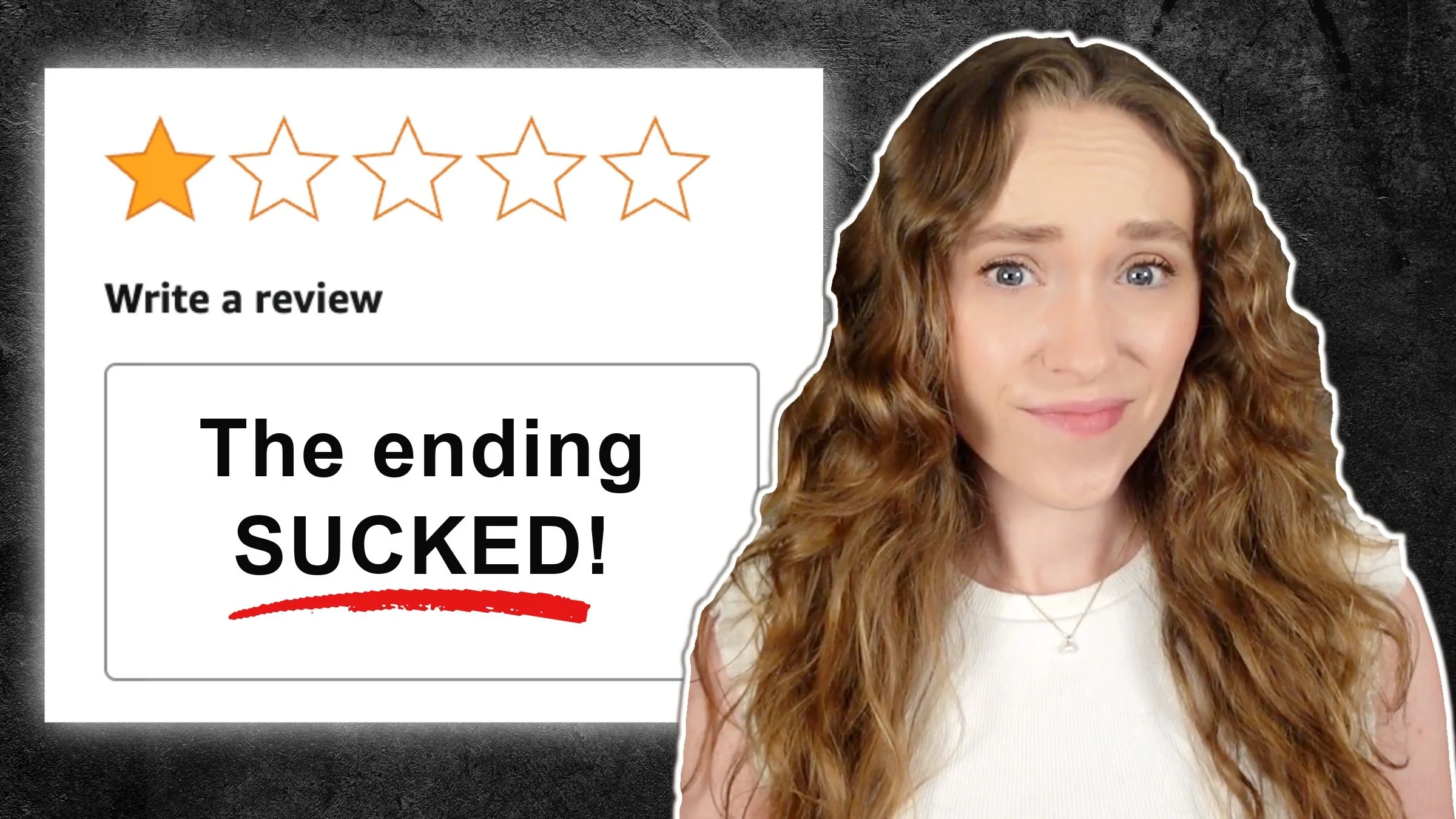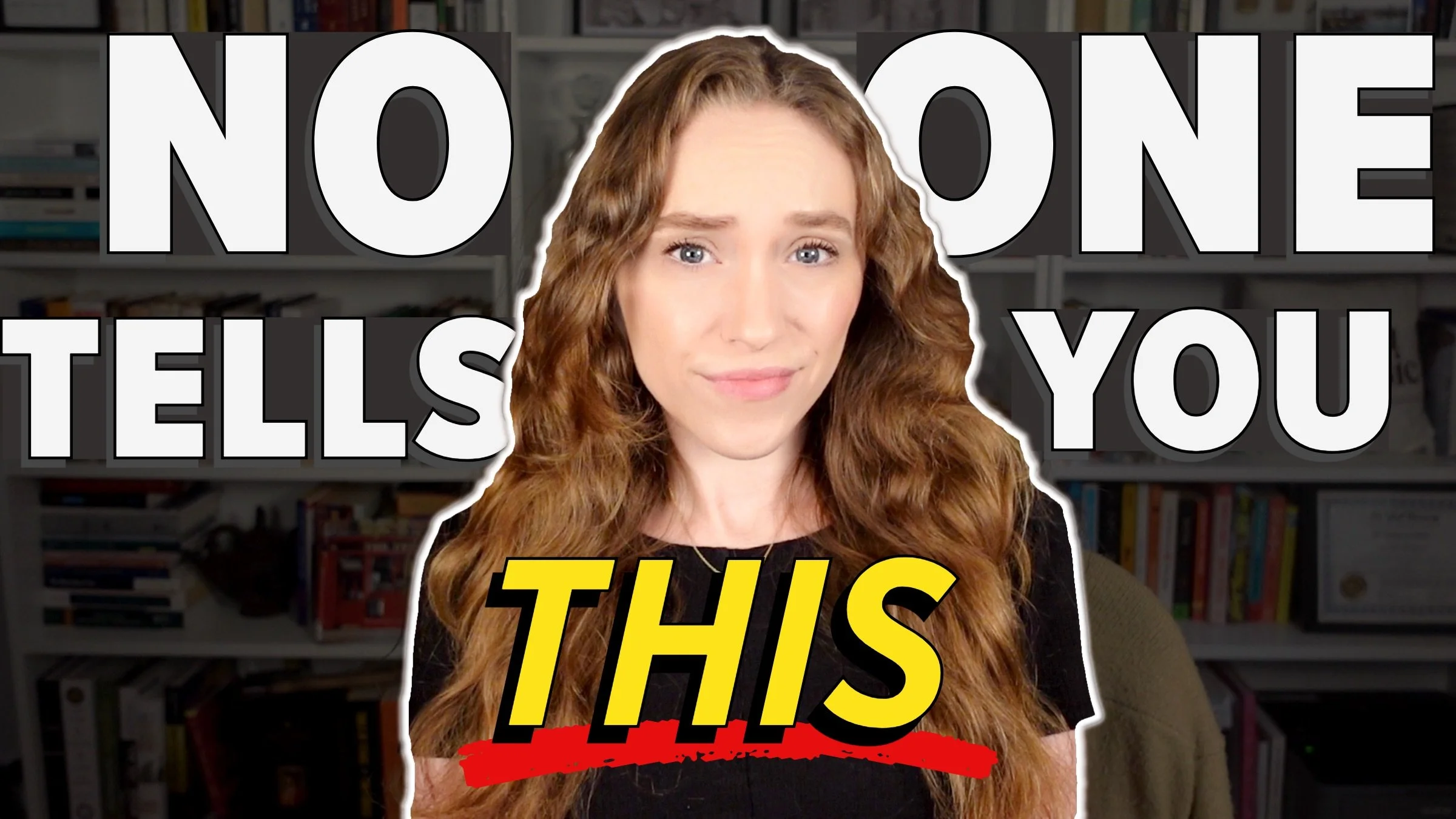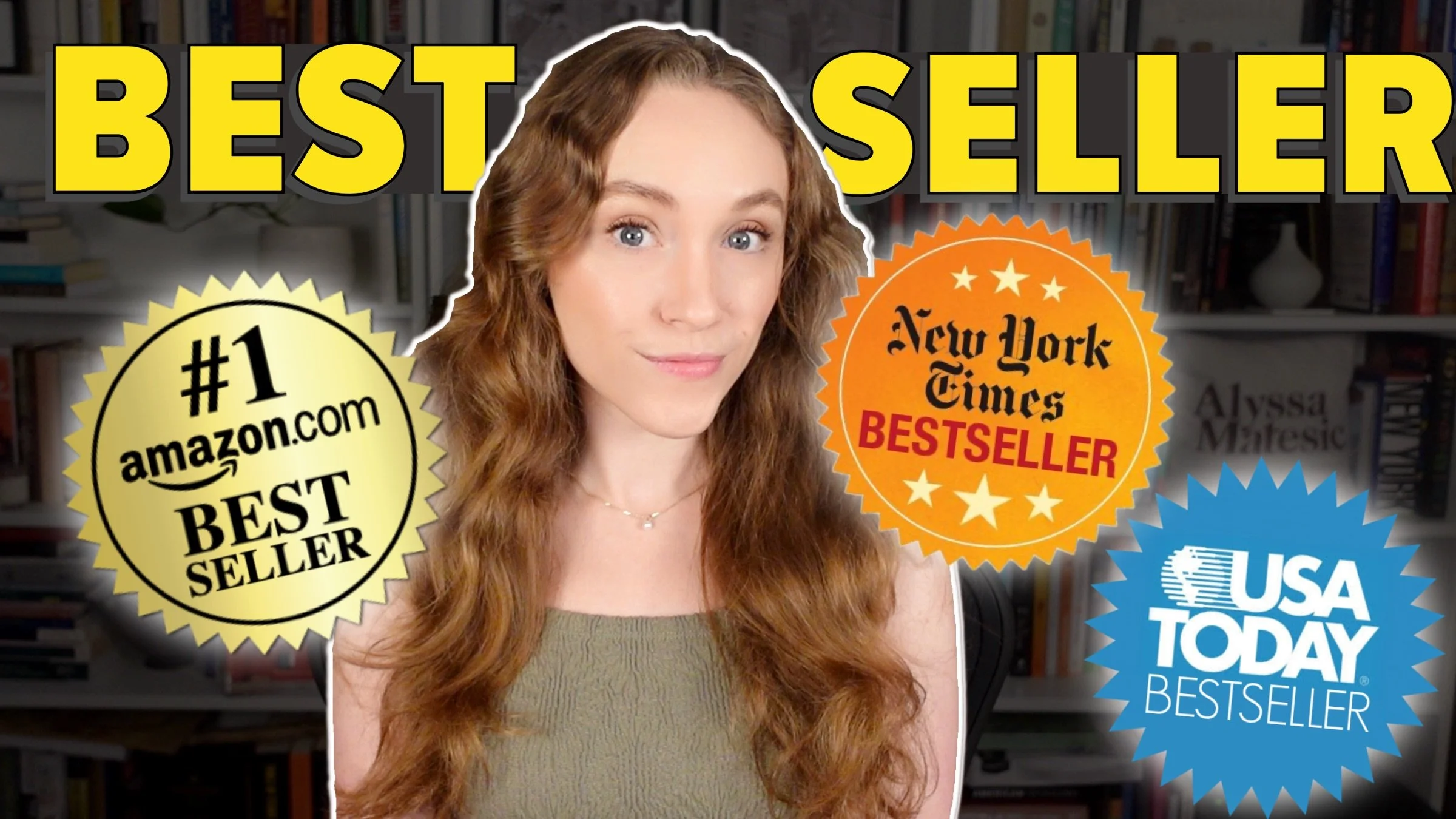Writing a Blurb for a Novel: Dos and Don’ts
HIT PLAY OR READ THE POST BELOW:
If you are in the process of reaching out to literary agents in the hopes of getting representation for your book, then you know that a part of the query letter process is writing a blurb for your novel. Query letter blurbs are the enticing, short descriptions of your story, akin to what’s on the back cover of physical books.
In fact, the blurb might arguably be the most important part of your query letter. It is the part of the letter the agent reviews to decide if they're interested in reading your sample pages and possibly requesting your full manuscript.
Now, admittedly, some agents tend to skip right to the sample pages and just gloss over the query letter blurb. But most will review it, which is why it is important for you to have a well-crafted blurb so that your query letter is both complete and viable. Your goal with the blurb is to make the agent feel like your book is something they absolutely have to read.
But there is a lot of confusion about writing a blurb for a novel, as many confuse it with the synopsis. So in this article I aim to clear all of that up and give you the top do's and don'ts on how to write a blurb for your novel. I am also going to use a real life example from a successfully published book so you can get a taste of what the blurb looks like in practice.
What Is a Query Letter Blurb?
Before I get into the do's and don'ts of writing a blurb for a novel, I need to clear up what a blurb is and how it differs from a synopsis. There's a lot of confusion between these two terms and they're often used incorrectly and interchangeably.
Think of the blurb as a movie trailer of your book. It gives the reader/agent a taste or teaser of what your book is about. It’s written in the same style as the book jacket copy or description copy that is found on the back cover of a physical book or online in the product description space.
A blurb’s function is to entice the reader, not to give the entire story away. It should also convey an idea of what the story is about, so that the reader can decide if it's something they're interested in or not.
A question I often get asked about writing a novel blurb is how long it should be. In general, it should be no longer than three or four short paragraphs composed of 2-3 sentences. Less is more, and you want to keep it short and sweet for the agent skimming your query letter. In fact, the most common edit I make whenever I am working on a client's query letter is shortening the plot blurb.
While the blurb is an integral part of the query letter, and it should always be included, the synopsis is not always necessary. It’s an optional, separate document that gives away the entirety of your novel. Step-by-step, it explains exactly what happens through the beginning, middle, and the ending of your story. This document should be anywhere between one full page to about three pages long. You will only need a synopsis if the agent specifically requests one. If they don't, don't worry about writing one up.
An Example Blurb
Here’s an example of a blurb that hits all the right notes and checks all the boxes. This example is from a thriller called Tell Me Everything by Cambria Brockman. This is a book I love and has sentimental value to me because I worked on this book when I was at Random House. The blurb in this case is also the description used to sell the book online.
In her first weeks at Hawthorne College, Malin is swept up into a tight-knit circle that will stick together through all four years. There’s Gemma, an insecure theater major from London; John, a tall, handsome, wealthy New Englander; Max, John’s cousin, a shy pre-med major; Khaled, a wisecracking prince from Abu Dhabi; and Ruby, a beautiful art history major. But Malin isn’t like the rest of her friends. She’s an expert at hiding her troubled past. She acts as if she shares the preoccupations of those around her—dating, partying—all while using her extraordinary insight to detect their deepest vulnerabilities and weaknesses.
By Senior Day, on the cusp of graduation, Malin’s secrets—and those of her friends—are revealed. While she scrambles to maintain her artfully curated image, her missteps set in motion a devastating chain of events that ends in a murder. And as fragile relationships hang in the balance and close alliances shift, Malin must test the limits of what she’s capable of to stop the truth from coming out.
So did that make you want to read the book? I hope so. Regardless, I do think this example illustrates a lot of the things that are important to have in your novel blurb.
Do: Introduce the Protagonist
The first “do” for writing a blurb for a novel is that you want to make sure you're introducing your main character or characters. In most cases, it works well to introduce the protagonist in the opening line. If your novel has multiple protagonists that share equal space, or if it has multiple shifting points of view, you want to make sure that you include all of those protagonists in the blurb.
This is because after the agent reads the blurb, they're going to be looking out for those characters in the manuscript. So you want to make sure you're setting up the proper expectations for who they are going to meet in the novel. It also helps the agent connect with the characters from the get-go and give them a sense of whose story this is.
The example blurb does this well with the opening line. We immediately understand that Malin is just starting a four-year journey in college and that the journey will be accompanied by friends. The reader knows where she is in life and at what point the novel begins.
Don’t: Use Prefatory Language
My first “don't” for writing a novel blurb is you don't want to use prefatory language. That is language such as, “This novel starts with…” or “In my story, this happens…” Rather, you should dive right into a description of what happens in the story itself. It will provide a more dynamic and engaging way to get the agent's interest.
The agent already understands that this is your novel and this is your story. Even though it might feel awkward to head straight into the action, remember that the query letter is a very concise document. The agent is only going to spend a few minutes reading it. So you want to cut out any extraneous words, like this prefatory language.
You only have a limited number of words to pique the agent's interest, so make sure you keep the blurb as tight and clean as possible.
Do: Specify the Conflict
Conflict is a very important element to include in your query letter blurb, but far too often the first drafts of a blurb will be much too vague.
The blurb should give the agent a sense of what your story is specifically about and what the characters are going through. But using language such as “My characters run into obstacles” and “they face many challenges” doesn’t give any specificity to your story. Instead, aim to be more precise in your language.
That said, you also don't want to give everything away. There is a balance you need to maintain in the blurb between being too vague and too blatant. To help prevent you from summarizing instead of blurbing, keep in mind that you are only going to have the space to go through the first couple of beats in the plot. So try setting up those first inciting incidents and tease the main conflict that is explored through the rest of the story.
Let’s look a closer look at some of the lines from the above example:
By Senior Day, on the cusp of graduation, Malin’s secrets—and those of her friends—are revealed. While she scrambles to maintain her artfully curated image, her missteps set in motion a devastating chain of events that ends in a murder.
This excerpt toes the balance of giving the reader enough information about the major conflict without being overly vague. We understand that secrets about Malin’s life are going to be revealed and, consequently, there is going to be a murder. These are two very specific details about the story. However, the reader is still intrigued even though they know there’s a murder, as the nature of the secrets and the way the murder unfolds is not yet revealed. And of course, we don't know who is murdered or who is the murderer.
Don’t: Be Overly Detailed
When writing a novel blurb, you don't want to include too many details. For example, you don't need to name every secondary character or get into every single subplot.
You just want to talk about the macro-level point of conflict. Again, since the agent is only going to give a quick pass through that blurb, you want to present the main character and the main conflict. There is just not enough room to go into all of the complexities of your manuscript, and that’s okay.
Do: Use a Call to Action
As you are closing your novel blurb, entice the agent to discover what happens next. After all, that is the whole point of the blurb.
So it's important to end the blurb with a sentence that compels the agent to dive into your sample pages and, ultimately, request the full manuscript. To do this, you want to make sure you're introducing a question or element of mystery.
This can be done through a literal rhetorical question. While some people don't like this technique, I honestly don't mind a question in a query letter blurb, such as “Will she be able to stay true to herself?” I like it because it will help you pinpoint a main question and point of tension that your novel explores.
What is the agent reading to discover? What is the main point that the reader is going to unravel by reading your story? What is the selling point of your story and what is the payoff? Think through these questions as you're crafting the blurb’s final sentence.
Let’s revisit the example from the blurb to see how it ends:
And as fragile relationships hang in the balance and close alliances shift, Malin must test the limits of what she’s capable of to stop the truth from coming out.
I like this closing line because the phrase “Malin must test the limits of what she's capable of” will make the agent wonder what exactly she's going to do and how far she's going to go. Plus, the agent also wants to know what the truth she's trying so hard to protect is.
If I were to recraft this closing line as a rhetorical question, it would be something like, “How much is Malin willing to sacrifice in order to stop the truth from coming out?”
The ending line could go both ways, either a hard-stop sentence that's exciting and suspenseful, or a question that prompts the reader to think further on the subject.
Don’t: Give Away the Ending
Now I've already talked about this, but the biggest “don't” to keep in mind when writing a blurb for a novel is to not spoil the ending. Writers often get confused here because again, in a synopsis document, you do want to give away the ending clearly and deliberately.
The blurb, though, is defined by the fact that it doesn’t give the ending away. As I said, it’s like a movie trailer. If a movie trailer gives away the ending, viewers will either not watch the movie, since they already know what happens, or will feel unsatisfied as they watch the movie, since the twists and turns have already been spoiled.
So don't do that with your blurb. If you want to reference other blurbs, turn to the book jacket copy or description copy for books that you love. That's what it should sound like. It doesn't give away the ending, it just makes you excited to open the book and dive in.
I hope these tips help you craft an exciting and enticing novel blurb for your query letter. Although the blurb is short, it is one of the most vital descriptions of your novel that you will write. A successful blurb will help you land a literary agent and get you one step closer to holding a physical copy of your book in your hands. So take your time and try to get it as close to perfect as possible!
Thanks so much for reading and happy writing!





